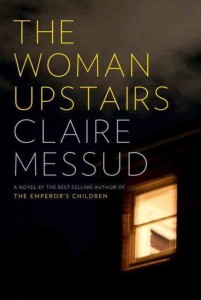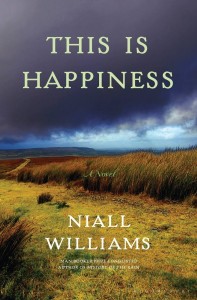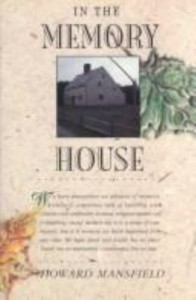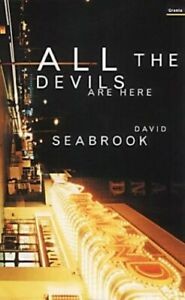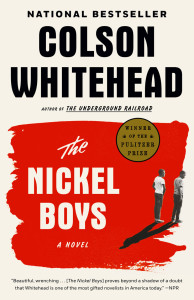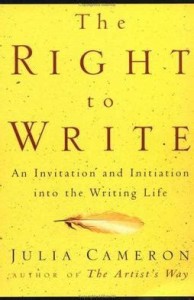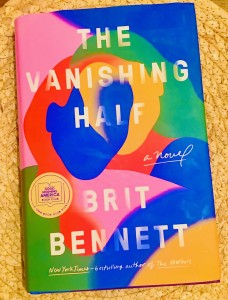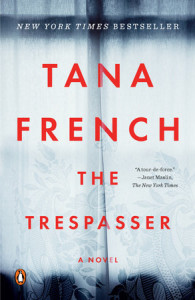Klara is an Artificial Friend who, in the first part of this new novel from Ishiguro, is chosen and taken home by 14-year-old Josie. The AFs are apparently companions for the children in this future time: they don’t go out much and have little contact with other children except through “interaction meetings” set up by parents of other “lifted” children.
Although never defined, lifting seems to be the use of genetic engineering to increase children’s future professional and financial success. Josie’s neighbor and best friend, Rick, is unlifted and thus unlikely to be able to get into any college or university. Lifting seems to be the next step for the ambitious parents of our own time who are willing to do anything, break any law, to ensure their offspring get into a top college.
Along with our narrator Klara, we learn about Josie’s home life, the schooling she receives on her “oblong,” and the mysterious illness that threatens her life. It is Klara’s voice that makes this novel work. Befitting a machine, her tone is affectless and a little alien, yet with just enough warmth to beguile the reader.
Klara is constantly learning and adjusting based on her observations. She sees and describes the confusing emotions of the humans around her. She comes to believe that the sun is a healing god who can be approached and petitioned. One member of my book club wondered if perhaps Klara was solar-powered, which would bolster her religion.
The use of AFs harks back to the use of governesses, servants, and slaves to do the emotional work some parents, such as Josie’s mother, are too busy for. This theme of service and its evil twin power—the effects on both the servant and served—is one Ishiguro has explored before, notably in The Remains of the Day.
It is also a theme on the minds of many of us today as we consider the front-line workers who have had to bear the brunt of the pandemic, not just the doctors and nurses, but the workers who delivered meals and groceries and everything else to the doors of those who could afford to hole up at home.
Like so many of today’s dehumanised servers, Klara is considered a thing, an appliance. When Klara accompanies Josie to another home, the mother there asks, “ ‘Are you a guest at all? Or do I treat you like a vacuum cleaner?’ ” Klara is sometimes sent to stand alone in a closet until she is wanted. She does not seem to pass judgment on the humans around her, only to observe. On the other hand, Josie mostly treats her as a person, and even Josie’s distant mother begins to interact with Klara as she would with another person.
What does it mean to be human? Can a machine become human?
I was surprised by my book club and the reviews I read that many if not most people think that Klara is sentient. That she does experience emotion. That she loves Josie.
I’m not so sure. Klara has been programmed to do her duty as an AF which includes a dedication to Josie’s well-being. Klara goes all out to find a cure for Josie’s mysterious illness, but is that love or duty? Is there some essence of humanity that a machine can never have? One character says of human beings that there is ” ‘something unreachable inside each of us. Something that’s unique and won’t transfer.’ ” Is that true or wishful thinking?
These questions are complicated by the genetic tinkering that makes the lifted children into something deliberately built to specifications.
By using Klara as the narrator, Ishiguro leaves many questions open. We keep reading, hoping to understand exactly what Josie’s illness is, why her sister died, what the Cootings machine is. It is never explicit why young people need artificial companions, but here and with the other questions we ponder and perhaps come up with our own explanations.
One of the things that initially confused me is the way Klara describes what she “sees.” She talks about “partitions” which seems to be creating a two-dimensional grid before being able to recognise them as three-dimensional objects. The number of partitions increases when she is struggling (with emotion as some maintain? or with overwhelming input?). The effect is mesmerizing, as for example when a human in front of her appears in multiple partitions, each expressing a different and sometimes conflicting emotion—a brilliant way of illuminating the mix of emotions we feel at any time.
What I like most about this book, and indeed all of Ishiguro’s work, is his willingness to write about big questions. Here he explores the moral dimension of our rapidly changing world—expanding technology, environmental degradation, the ever-increasing wealth gap—in the context of our inevitable mortality and the love that may be the key to our redemption.
What novel have you read that left you pondering the big questions it explores?

